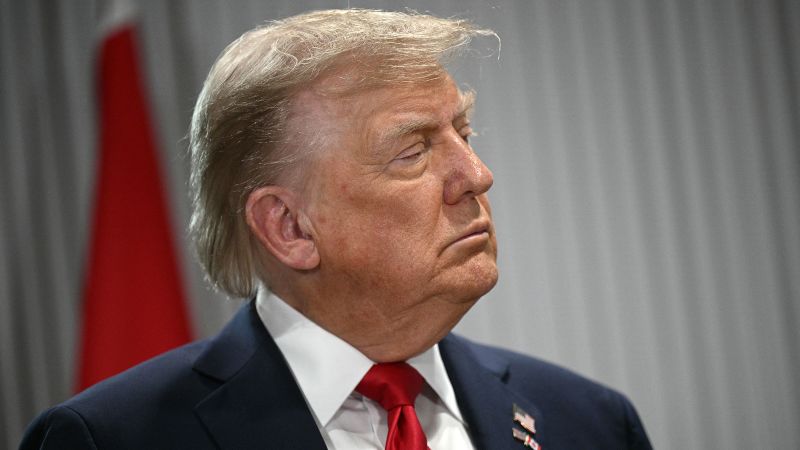In a significant diplomatic move, President Donald Trump has reportedly chosen not to endorse a joint statement advocating for de-escalation between Israel and Iran. This statement, which was crafted by leaders from the G7 countries at a recent summit in Canada, aimed to address rising tensions in the region. A source familiar with the situation disclosed Trump’s position, signaling a potential rift with other G7 leaders even before formal discussions commenced in the picturesque Canadian Rockies.
The draft statement issued by the G7 included strong affirmations of support for Israel’s right to self-defense, while simultaneously emphasizing the international community’s stance against Iran’s pursuit of nuclear capabilities. Such a declaration was spearheaded by various European officials who aimed to present a united front regarding Middle Eastern stability amid growing concerns over Iran’s nuclear ambitions. The statement underlines the delicate balance of global politics, where alliances and national interests intersect.
In response to inquiries regarding Trump’s reluctance to sign, a White House official asserted that under President Trump’s administration, the United States is reclaiming its role as a leader in global peace efforts. The spokesperson proclaimed that Trump’s unwavering commitment is to prevent Iran from acquiring nuclear weaponry. This statement reflects a broader strategic agenda that the administration has maintained since taking office, emphasizing a hardline stance toward Tehran. The official’s remarks signify not only Trump’s intentions but also the administration’s perception of its role in global governance, where direct leadership is prioritized over collective statements.
Trump’s refusal to align with the G7 statement introduces a notable discord with world leaders who may expect a collaborative approach to international crises. This divergence plays into a larger narrative concerning the United States’ foreign policy, which has frequently been characterized by unilateral decisions that prioritize American interests, sometimes at the expense of traditional alliances. The G7 summit, which traditionally serves as a platform for unified strategies among the world’s largest economies, is now faced with an unexpected challenge as it navigates Trump’s distinctive leadership style.
Moreover, Trump’s decision to abstain from endorsing the joint declaration could engender heightened tensions not only with Iran but also among other G7 member states. The summit ideally aims to foster dialogue and cooperation, but the absence of consensus around critical regional issues poses risks to its overarching objectives. Observers of international relations might gauge this as an indication of shifting allegiances and priorities on the global stage, particularly when addressing matters as contentious as nuclear proliferation.
As discussions are set to unfold in Canada, the repercussions of Trump’s choices will be closely monitored, particularly how they might shape the dynamics among G7 leaders. Will this lead to greater isolation for the U.S. in future multilateral dialogues, or could it prompt a recalibration of strategies among allies?
As this situation develops, all eyes remain on the unfolding interactions at the summit. It is worth noting that the complexities of international relations are often fluid and responsive to the outcomes of such high-stakes meetings. The world will watch as this story progresses, anticipating further developments that could influence not only U.S.-Iran relations but also the broader geopolitical landscape. Furthermore, analysts are likely to provide updates and insights as they interpret the implications of these decisions in real time, signaling the importance of continued vigilance in global affairs.



